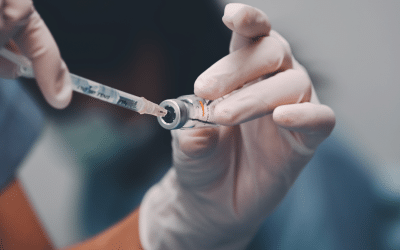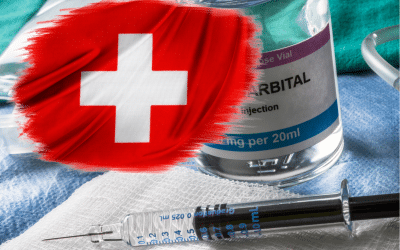Since 2003, 10th September is the worldwide day for suicide prevention, organised by the International Association for Suicide Prevention (IASP) and co-partnered by the World Health Organisation (WHO).
More than twenty years ago, suicide was in fact recognised as a major public health problem demanding a true preventive policy.
By pure coincidence, a few days ago the Mostra de Venise festival ended after rewarding the Spanish director Almodóvar for his film on assisted suicide, The room next door, which was awarded the Gold Lion.
The feature film tells the story of an ex-war reporter used to defying death who, when she contracts cancer, decides to end her days. When collecting his prize, the director used the platform to make a plea for euthanasia, claiming that “to say goodbye to the world with dignity is a fundamental right for all human beings”.
Suicide, a tragedy accounting for a million deaths per year
Far from being a happy story, suicide is in reality the very numerous lives which end every day, even more attempts to end lives, crises and suicidal tendencies which are treated by psychiatry, and a major challenge for public health since the tragedy affects us all.
On a worldwide scale, a suicide takes place around every 40 seconds, as well as an attempted suicide every 3 seconds, this equates to 1 million suicides every year worldwide. It is more than all the people killed by wars and natural disasters!
In our nation alone, the figures are also alarming (even if a downward trend has been recorded over the last twenty years), since France suffers a suicide rate of 13.4 per 100,000 inhabitants – one of the highest in Europe, and more than the European average of 11.3 (in 2017). Some 9,000 suicide deaths are recorded every year in France.
Also in France, 685 attempted suicides are recorded per day: these attempts result in 100,000 hospitalisations per year, and around 200,000 visits to A&E. Suicide attempts therefore represent twenty times the number of actual suicides.
Impact on the entourage and suicidal contagion
The ultimate intimate act, suicide is nevertheless far more than an “individual” tragedy: brutally and violently plunging into mourning the entire entourage of the person, it concerns society as a whole. According to Pierre Thomas, professor of psychiatry at Lille University:
“Each suicide is in fact a catastrophe, the root cause of much pain and trauma in the family circle, and it can be one of the most difficult events health professionals are confronted with.
It is considered that a single suicide plunges on average seven family members into mourning and impacts more than 20 people. Also, it has been demonstrated that the risk of suicide increases significantly within the entourage of the suicide victim (family, class mates, work colleagues, etc.), this observation has led to the development of the idea of suicidal contagion and the establishment of means to combat such contagion.”
During the International Symposium on the end of life, organised by Alliance VITA on 28th February 2024, Stève Bobillier, a Swiss Docteur of philosophy and social sciences and an ethicist also showed that : suicide is not an individual act, but has a considerable impact on family members, carers and society in general.
Moreover, through suicide mimicry or the Werther effect (a phenomenon identified in 1982 by David Philipps, the American sociologist who studied the greater number of suicides following the media coverage of suicide cases), the legislation relative to assisted suicide would lead to a dangerous de-dramatisation to the detriment of its prevention.
What therefore should one think about the “publicity” afforded to assisted suicide by films such as the one mentioned above, when it is known that such models can have an impact on those who view them? To such an extent incidentally, that in its recommendations to media professionals, the WHO, in partnership with the IASP, recommends in particular to avoid any language which sensationalises and normalises suicide or which presents it as a solution to problems.
Every suicide is a failure by society: it could be otherwise, suicide is not inevitable, as is recalled by the professionals of prevention and all those who, after a failed attempt, find a new purpose in life.
The need for prevention of all types of suicide
The legalisation of assisted suicide and euthanasia as intended by the end-of-life bill (whose legislative process was curtailed by the dissolution of the French parliament on 9th June) would seriously obstruct the prevention policies. It is quite irresponsible to present a suicide as desirable and to suggest that the State should organise it.
Whereas the psychiatric sector is confronting a deep crisis, specialists expressed their concern in a column published in Le Monde on 10th April 2024 :
“At a time when we are considering the potential authorisation of assistance in dying, it is crucial not to lose sight of the importance of suicide prevention, which must be a priority for public health, demanding continuous efforts: it is essential to identify and support all those who are fighting against suicidal thoughts.[…] The question is therefore not so much to know whether psychological pain is irreversible, but rather to know whether the health system is capable of deploying sufficient means for its treatment by proposing to patients all the possible options.”
What sense could there be to propose on the one hand a call centre for people tempted by ending their days, with a toll-free number (3114), and on the other hand to propose an assisted suicide “service”?
Where is the logic in re-contacting, via the VigilanS system, those who attempted suicide, to accompany them and avoid any repeated attempt, and at the same time to give a positive response to requests for euthanasia by others?
Alliance VITA asks that nobody should be excluded from prevention policies: irrespective of their age, their state of health, their handicap or their dependence, nobody can be declared “eligible” for suicide. No life deserves to be considered as vain, useless and of no value. On the contrary the most vulnerable are those most in need of protection against the risk of attempting a desperate act.



